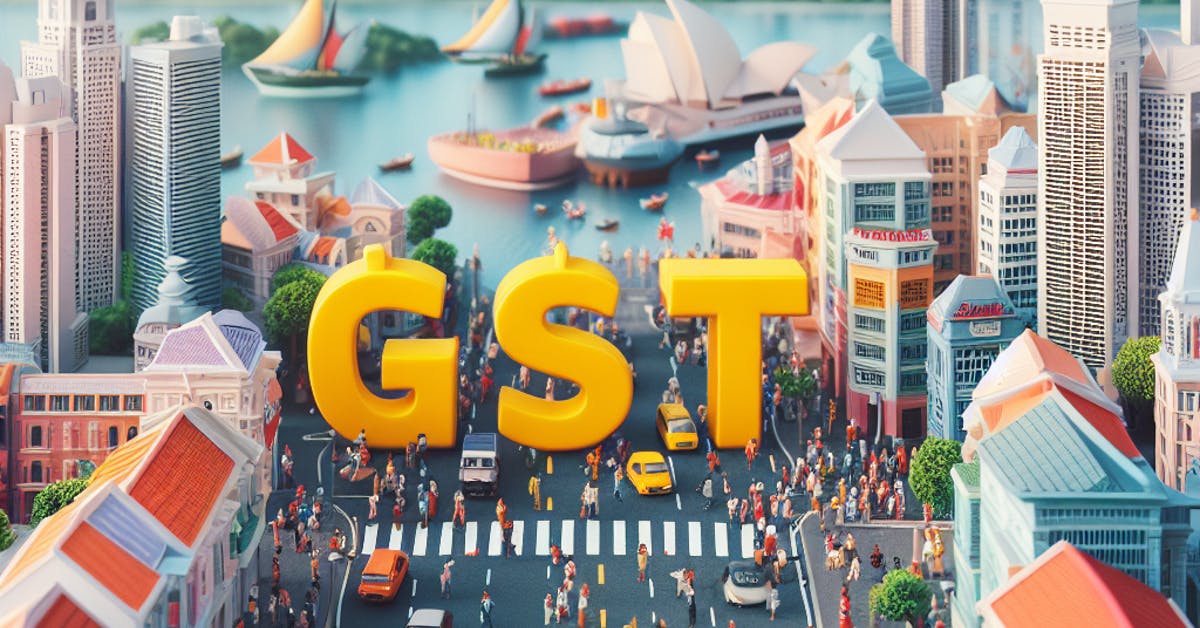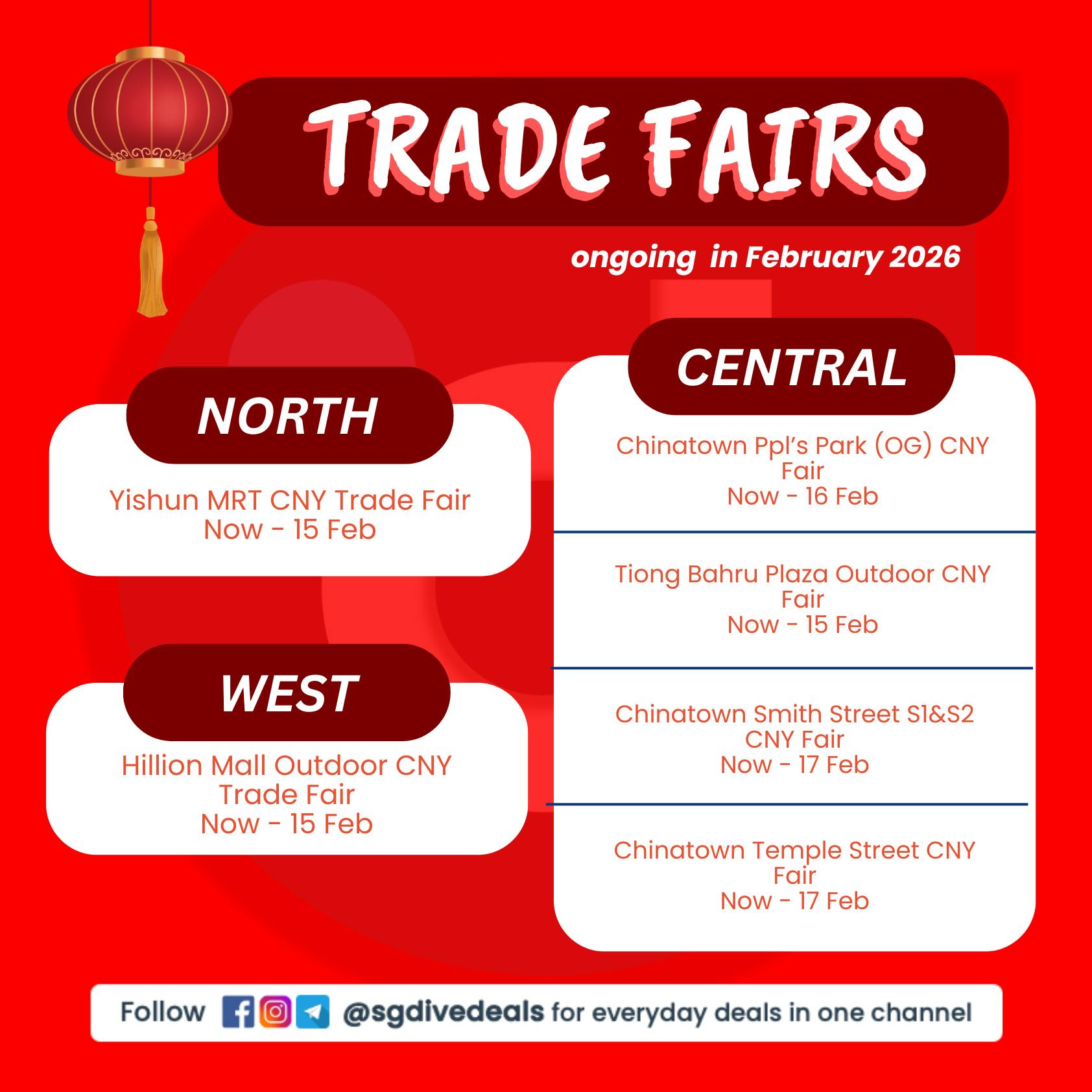Everything you need to know about the GST increase in Singapore

GST increase starts now
You should know this by now, but the GST rate in Singapore is set to increase from 8% to 9% on January 1, 2024. This follows the previous increase from 7% to 8% on January 1, 2023, as announced earlier in Budget 2022 by the Minister for Finance.
Here are some interesting facts to note about the GST increase in Singapore
- GST was first introduced in Singapore on 1 Apr 1994, starting at a rate of 3%.
- Between 1 Apr 1994 to 31 Dec 2002, GST remained at 3%, for about 8.75 years.
- Between 1 Jan 2003 to 31 Dec 2003, GST increased to 4%, for 1 year.
- Between 1 Jan 2004 to 30 Jun 2007, GST increased to 5%, for about 3.5 years.
- Between 1 Jul 2007 to 31 Dec 2022, GST increased to 7%, for about 15.5 years, the longest we have ever seen.
- Between 1 Jan 2023 to 31 Dec 2023, GST increase to 8%, for about 1 year.
- Starting 1 Jan 2024 onwards, GST will be increase to 9%.
Singapore's GST remained the longest from 2007 to 2022 at about 7%, while for others we notice that it could happen frequently otherwise.
Singapore businesses absorbing or cushioning the GST increase
- Giant to absorb 1 percentage point GST rate increase for over 700 essential products from Jan to June 2024
- Fairprice Group will absorb the one per cent GST increase on 500 essential items for the first six months of 2024, and up to 2-3% for members of the Pioneer Generation (PG), Merdeka Generation (MG), and Community Health Assist Scheme (CHAS) Blue cardholders.
- From 1 January 2024, IKEA Singapore will absorb the 1 percent GST rate increase and maintain prices on offerings in-store and online
- Supermarket chain Sheng Siong will offer a 1 per cent discount on purchases from January to March 2024.
Understanding GST in Singapore: What It Applies To
In Singapore, the Goods and Services Tax (GST) is an important aspect of the economy, affecting both businesses and consumers. Here's a breakdown of what GST applies to:

Understanding how GST affects Singaporeans
Scope of GST: GST is levied on two main categories:
- Goods and services supplied in Singapore by any taxable person in the course of business.Goods imported into Singapore by any person.
- Types of Supplies: Supplies in Singapore are classified as either taxable or exempt.
- Taxable Supplies: These are further categorized into standard-rated and zero-rated supplies.
Standard-Rated Supplies: These are subject to GST at the prevailing rate, which is currently 7%. This rate is set to increase to 8% in 2023 and 9% in 2024.
Zero-Rated Supplies: The GST rate for these transactions is 0%. This category primarily includes exports of goods and international services. While GST is not charged on these supplies, businesses can still claim a refund on the GST paid on their inputs.
Exempt Supplies: These are not subject to GST. Consequently, a GST-registered trader does not charge GST on these supplies and cannot claim input tax credits for GST paid on goods and services used in their business. Key examples of exempt supplies in Singapore include the sale and lease of residential properties and financial services.
This system ensures a comprehensive yet specific application of GST, impacting a wide range of transactions within Singapore’s economy. Understanding these categories helps businesses and consumers navigate GST regulations effectively.
What GST increase means for consumers in Singapore
Here are some key information and scenarios to take note of.

Understanding what GST increase means for consumers in Singapore
Assurance Package Enhancement
To alleviate the impact of the GST hike, the Singapore Government has enhanced the Assurance Package. Originally valued at $6.6 billion in Budget 2022, it was increased to $9.6 billion in Budget 2023 and further to over $10 billion in September 2023. This enhancement is a response to rising inflation and aims to provide additional support for Singaporeans, particularly regarding cost-of-living concerns.
Duration of Support
The Assurance Package is designed to offset the additional GST costs for the majority of Singaporean households for at least five years. For lower-income households, this support could extend to around ten years.
Additional Support Measures
Beyond the Assurance Package, lower to middle-income Singaporean households will continue to benefit from the permanent GST Voucher Scheme. Additionally, publicly subsidized education and healthcare services will continue to absorb GST, providing further relief.
Important news for Shoppers to take note of
While this may be nationwide and affecting most goods and services, do note that some businesses will be helping to absorb the GST increase - so it sounds like a good idea to consider shopping at this areas, and doing your groceries there.
For example, Giant is absorbing GST increase for selected essential products from January 2024 to June 2024.
Also Sheng Shiong is also looking to offset GST increase until March 2024.
Fairprice group has also put up a press release earlier to moderate cost of living with strategic initiatives – to implement GST offset and extend Senior Discount schemes.
IKEA has also announced to provide GST cushions, so if you know where to go for renovation deals, promotions or furniture purchases!
Preparations for Businesses
GST-registered businesses are advised to undertake three key steps to prepare for the new 9% GST rate:
- Update their systems to incorporate the new GST rate effective from January 1, 2024.
- Prepare their price displays to reflect the new 9% GST rate from January 1, 2024.
- Understand and apply the correct GST rate according to transitional rules for sales transactions and reverse charge supplies spanning January 1, 2024.
Common Errors to Avoid: Businesses should be wary of three common mistakes:
- Charging GST at 9% before January 1, 2024.
- Charging or displaying GST at 8% on or after January 1, 2024.
- Correctly computing GST amount but reflecting the wrong GST rate on receipts/invoices.
Transparent Communication on Price Increases
Businesses must transparently communicate any price increases to consumers, clarifying the main reasons for such increases. It is crucial to avoid misrepresenting the situation by attributing price increases primarily or solely to the GST hike. The Committee Against Profiteering will investigate any unjustified price increases using the GST increase as a pretext.














![Top Family Friendly Holiday Destinations from Singapore [2026]](https://images.prismic.io/dive/aTvjJ3NYClf9oGZZ_Divedeals-1-.png?auto=format,compress)
![Top China Destinations & Best Places to Visit [2026]](https://images.prismic.io/dive/aTjYh3NYClf9n_og_TopChinaDestinations-1-.png?auto=format,compress)